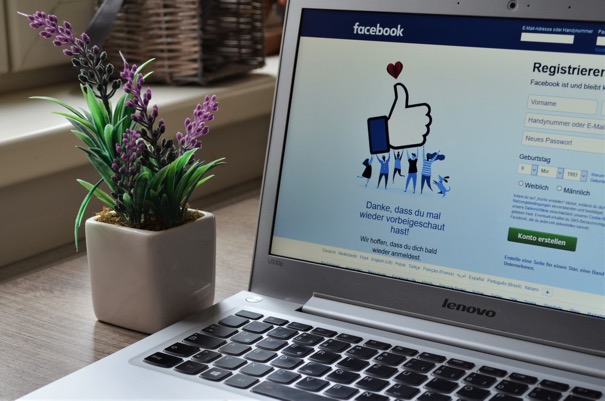Social Media Marketing for Business: Facebook vs. Instagram

Summary: Explore the debate of Instagram vs. Facebook for business marketing. Explore the strengths and weaknesses. Select the right social media platform today!
Editor’s Note: This post was originally published in October 2018 and has been updated with new content and details for November 2023.
As you explore the world of social media marketing for your business, I’m sure the debate of Instagram vs. Facebook, among other questions, has crossed your mind. Things like, “Which platforms should I use?” and “How do I know which social media platform is right for my business?”
Before you get ahead of yourself and leap onto one or multiple social media platforms for your business, it’s critical to establish your business’ marketing goals first. If you don’t have set goals and objectives for your marketing strategy, it’s a lot harder to achieve social media success.

In this blog post, we will look at Facebook and Instagram and which social media platforms are right for your business.
Now, you may be thinking, “Oh, nobody uses Facebook anymore. The only people on Facebook are my parents and their friends, showing off pictures from the cruise they went on last summer. So, of course, Instagram is the way to go, right?” or “All the millennials are on Instagram, so I totally should choose Instagram for my business.”
Before jumping to these conclusions, let’s examine this Facebook or Instagram debate. We will be exploring the strengths and weaknesses of both platforms from a business standpoint and how you can determine which platform suits your needs. Chances are you may be able to implement both platforms into your business’s marketing strategy. However, it is entirely okay to choose one over the other.
I’m not here to tell you that one platform is better than the other. I will let you decide which platform is right for your business once you’ve reached the end of this post.

Facebook currently has over 2 billion monthly active users, and there’s no doubt that more and more businesses are considering Facebook for their business marketing efforts. With such an endless audience to market to, Facebook is a platform that many Facebook users strive to be present on, as it’s probably one of the top social media platforms for business.
Facebook Marketing Strengths
Facebook marketing is a powerful tool that can help businesses of all sizes achieve their marketing goals. It offers several strengths, including:
Increased Brand Awareness
Looking to build your social media presence? Look no further because increased brand awareness is one of the many benefits of choosing Facebook for your business. Facebook can help you build your brand loyalty. With the number of active users on this platform being over 2 billion, the opportunities to reach a wider audience are endless. As a result, more brand awareness means more (potential) customers!
Efficient Communication Channel
In any relationship, communication is critical. Whether it be with your significant other, family, friends, coworkers, you name it. As a business, building a solid relationship with your customer base is no different. Ideally, you also want to understand why your customers want to chat and how it can change your business. Luckily, Facebook is an efficient channel of communication. It is an excellent platform to post announcements and engage with your customer base. Many businesses even look to Facebook as an interactive platform for customer service.
Effective Targeting
Another unique feature of Facebook for business is that it allows you to target specific demographics. This is particularly useful when you’re setting up targeted ads or if you’re considering boosting your Facebook posts. If you want to grow your following and reach a broader customer base, Facebook allows you to set specific parameters and target by region, gender, age, social activity, and pretty much anything else you can think of!
Drives Website Traffic
Savvy social media marketers will most likely use Facebook to drive traffic to their websites. This is another strength of choosing Facebook for your business. It is easy to include links on posts because Facebook’s full-width thumbnails have a high likelihood of being clicked. As a result, you can easily link to blog posts, articles, and other pages from your website.
Market Research and Facebook Insights
Facebook is also an excellent platform for conducting market research. Interested in seeing how you’re performing against your competitors? You can easily see what your competitors are up to on Facebook and tailor your social media marketing strategy to maintain a competitive edge. Facebook Page Insights also comes in handy when conducting market research because it is an effective tool for gathering information on your page viewers. This gives you a better understanding of the demographic you are reaching.
Facebook Weaknesses
Facebook has encountered various criticisms and challenges that highlight its weaknesses. These include:
Time and Resources
Setting up a Facebook page for your business takes time. At the beginning stages, you can’t expect people to like or follow your page right away. Keep in mind that you get what you put into it. With that being said, maintaining your business’ Facebook page also takes time. It’s not as simple as you think, and you must consider that whoever manages your Facebook pages is knowledgeable about the platform. You might need to consider hiring someone with the experience to drive your marketing efforts forward on Facebook.
Budget
If you want to make the most of Facebook for your business and take your social media marketing to the next level, setting aside an allocated budget to spend on Facebook advertisements is critical. Understanding why Facebook ads should be part of your marketing strategy is also important. However, it may not be feasible for some businesses because not everyone can afford to spend money on social media.
Dealing With Negative Feedback
We can not expect to win everyone over, just like in our daily lives. There will be instances where you’ll have to deal with negative feedback on Facebook. People may criticize you and disagree with you. In these situations, maintaining a degree of professionalism is crucial.
Content Moderation Issues
Facebook has struggled to effectively moderate content on its platform, leading to the spread of hate speech, violent content, and other harmful material. This has raised concerns about the platform’s impact on user safety and societal well-being.
Misinformation and Fake News
Facebook has been criticized for its role in the spread of misinformation and fake news. The platform’s algorithms can amplify false content, contributing to the spread of disinformation and polarization.
Addressing these weaknesses is crucial for Facebook to maintain its competitive edge and regain user trust. The company needs to implement more robust privacy protections, diversify its revenue streams, improve content moderation, and work to restore its reputation.
How does AI help Facebook with its strengths and weaknesses?
AI (Artificial Intelligence) has the potential to play a significant role in addressing both the strengths and weaknesses of Facebook.
AI-Powered Strengths
- Enhanced Targeting: AI algorithms can analyze vast amounts of user data to identify patterns and insights that inform more precise targeting. This can help Facebook deliver ads to the right people at the right time, increasing the effectiveness of advertising campaigns.
- Content Curation: AI can assist in curating and recommending content to users based on their interests and preferences. This can improve user engagement, increase time spent on the platform, and reduce user frustration from irrelevant or low-quality content.
- Misinformation Detection: AI can be used to identify and flag potentially false or misleading content, aiding in the fight against misinformation and fake news. This can help maintain the platform’s integrity and protect users from harmful information.
- Personalized Experiences: AI can personalize the user experience by tailoring features, recommendations, and content to each individual user’s preferences. This can enhance user satisfaction and loyalty.
- Automated Moderation: AI algorithms can help automate content moderation tasks, such as identifying and removing harmful content or violating community guidelines. This can improve the efficiency and effectiveness of content moderation efforts.
AI-Related Challenges
- Algorithmic Bias: AI algorithms can inherit biases from the data they are trained on, potentially leading to discriminatory or unfair outcomes. Facebook needs to carefully monitor and mitigate algorithmic bias to ensure fair and equitable treatment of all users.
- Privacy Concerns: Using AI in data analysis and advertising can raise privacy concerns. Facebook must implement robust privacy protections and transparent data practices to maintain user trust.
- Over-Reliance on AI: Over-reliance on AI can lead to a lack of human oversight and accountability. Facebook needs to strike a balance between leveraging AI’s capabilities and maintaining human control over critical decisions.
- Explainability and Transparency: AI algorithms can be complex and opaque, making it difficult to understand how they make decisions. Facebook needs to make its AI systems more explainable and transparent to build user trust and address concerns about fairness.
- Ethical Considerations: Using AI in social media raises various ethical considerations, such as the potential for manipulation, addiction, and social isolation. Facebook must engage in open dialogue with stakeholders and experts to address these ethical concerns responsibly.
By effectively utilizing AI, Facebook can enhance its strengths and address its weaknesses, improving the user experience, protecting user privacy, and maintaining a responsible and ethical approach to social media.
It’s wild to see how much Instagram has evolved over the past few years. More and more businesses are exploring Instagram as a medium to expand their social media marketing efforts. Instagram launched its Business Account in 2016, providing business users with tools to help understand their current and prospective customers. According to Instagram, there are over 25 million business profiles worldwide, and I feel this number will continue to rise. Moreover, over 2 million advertisers now use their Instagram accounts to share their stories and drive their business results.

Instagram Marketing Strengths
Instagram marketing is a powerful tool that can help businesses of all sizes achieve their marketing goals. It offers a number of strengths, including:
Visuals, Visuals, Visuals!
Instagram is strictly a visual platform, which is one of the strengths that separates Instagram from other social media platforms. Instagram consists solely of visual content like photos and videos, providing opportunities to ignite your marketing campaigns. Video content, especially, is becoming increasingly popular on Instagram right now – so popular that there has been an 80% increase in the time spent watching video content on Instagram. Ultimately, this platform provides a highly visual experience for its social media users.
Increased Brand Awareness
Similar to Facebook, Instagram helps businesses increase their brand awareness. The use of hashtags is extremely popular and is one of the driving forces for businesses and brands looking to be discovered by a wider audience. There’s no doubt that Instagram has undergone many updates and launched new features one after another in recent years. Features such as Instagram Stories, IGTV, and now Reels give businesses more opportunities to promote their brand, product, or service.
Collaborate With Influencers
Instagram has become a hub for influencers seeking collaboration opportunities with brands and businesses. As the number of influencers that use Instagram continues to grow, businesses should take this as an opportunity to increase their brand exposure. Many businesses, such as beauty and fitness brands, are already hopping on this trend.
Massive Reach
Instagram has over 2 billion active users, making it the most popular social media platform for Gen Z and Millennials. This vast reach allows businesses to connect with a massive audience of potential customers.
Measurable Results
Instagram provides businesses with comprehensive data on the performance of their posts and ads. This data can be used to track progress, identify areas for improvement, and optimize campaigns for maximum impact.
Instagram Weaknesses
Despite its massive popularity and effectiveness as a marketing tool, Instagram does have some weaknesses that users and businesses should be aware of:
Instagram Algorithm
Instagram’s changing algorithm has caused many mixed feelings over the past few years. “Why are my posts not showing up on some users’ feeds?” Remember when the posts on your Instagram feed appeared in reverse chronological order? This is one of the main challenges you may face if you adapt this social media platform for your business. Every time the algorithm changes, you must reevaluate and alter your existing Instagram strategy (e.g., when to post).
Difficult to Drive Traffic to Website
Unlike Facebook, driving traffic to your website using a social media platform like Instagram is a little more challenging. While you can easily directly link to different web pages with each Facebook post, Instagram has not yet reached the stage where they’ve enabled clickable links for their posts. Besides the “swipe up” option for Instagram stories and the link in your bio, businesses cannot use clickable links in their posts. If you include a link, Instagram users must copy and paste the URL into their web browser.
Targeting Specific Audiences May Be Difficult
Instagram is a social platform mainly dominated by a younger demographic, typically millennials or Generation Z. Although there are older users on Instagram, it may be worth considering if Instagram is worth the investment for your business if your target audience is much older. Because chances are, they might not even have Instagram.
Limited Features
Instagram has a limited number of features compared to other social media platforms. This can make it difficult for businesses to achieve their marketing goals, as they may be unable to use all the features they need to reach their target audience.
Fake Accounts and Spam
Instagram has a problem with fake accounts and spam, making it difficult for businesses to reach their target audience. This can also make it difficult for businesses to measure the success of their marketing campaigns.
Cyberbullying and Harassment
Instagram has been criticized for being a platform where cyberbullying and harassment can occur. This can be a serious problem for users, particularly young people, and can have a negative impact on their mental health.
Overall, Instagram is a powerful marketing tool that can be very effective for businesses. However, it is essential to be aware of its weaknesses so that you can take steps to mitigate them.
What role can AI play in helping Instagram’s strengths and weaknesses?
AI-Powered Strengths
- Enhanced Targeting and Personalization: AI algorithms can analyze vast amounts of user data to identify patterns and insights that inform more precise targeting and personalization of content. This can help Instagram deliver ads and content to the right people at the right time, increasing the effectiveness of advertising campaigns and user engagement.
- Improved Image and Video Recognition: AI can enhance Instagram’s image and video recognition capabilities. This can be used to more accurately categorize and tag content, making it easier for users to find relevant content.
- Creative Content Generation: AI can assist in generating creative content, such as captions, hashtags, and even images, helping businesses and individuals create more engaging and compelling content.
- Automated Moderation: AI can help automate content moderation tasks, such as identifying and removing harmful content or violating community guidelines. This can help make the platform safer for users.
- Real-Time Insights and Analytics: AI can provide real-time insights and analytics on user behavior, content performance, and ad effectiveness. This can help businesses and individuals make more informed decisions about their content and marketing strategies.
AI-Related Challenges
- Algorithmic Bias: AI algorithms can inherit biases from the data they are trained on, potentially leading to discriminatory or unfair outcomes. Instagram needs to carefully monitor and mitigate algorithmic bias to ensure fair and equitable treatment of all users.
- Privacy Concerns: The use of AI in data analysis and targeting can raise privacy concerns. Instagram must implement robust privacy protections and transparent data practices to maintain user trust.
- Over-Reliance on AI: Over-reliance on AI can lead to a lack of human oversight and accountability. Instagram needs to strike a balance between leveraging AI’s capabilities and maintaining human control over critical decisions.
- Explainability and Transparency: AI algorithms can be complex and opaque, making it difficult to understand how they make decisions. Instagram needs to make its AI systems more explainable and transparent to build user trust and address concerns about fairness.
- Ethical Considerations: The use of AI in social media raises various ethical considerations, such as the potential for manipulation, addiction, and social isolation. Instagram must engage in open dialogue with stakeholders and experts to address these ethical concerns responsibly.
By effectively utilizing AI, Instagram can enhance its strengths, address its weaknesses, and improve the user experience while maintaining a responsible and ethical approach to social media.
Instagram vs Facebook: Making the Right Choice for Your Business Strategy
At the end of the day, when considering Instagram vs Facebook, neither platform is better than the other. Both Instagram and Facebook have strengths and weaknesses. Ultimately, it all comes down to which of the two platforms you think best aligns with your marketing strategy and business objectives and goals. If you’re having difficulty deciding how to enter the world of social media or which platforms to use, we’d love to discuss your social media marketing strategy with you.
About the Author
Rick spent 20 years in the insurance industry in finance, primarily developing reporting platforms for B & C stakeholders. His ability to speak to consumers of data (managers and analysts) and translate their needs to programmers led him to start his own digital marketing agency in 2004 to develop data driven solutions for business owners.
The Best Digital Marketing Insight and Advice
We are committed to protecting your privacy. For more info, please review our Privacy and Cookie Policies. You may unsubscribe at any time.
Don’t stop the learning now!


